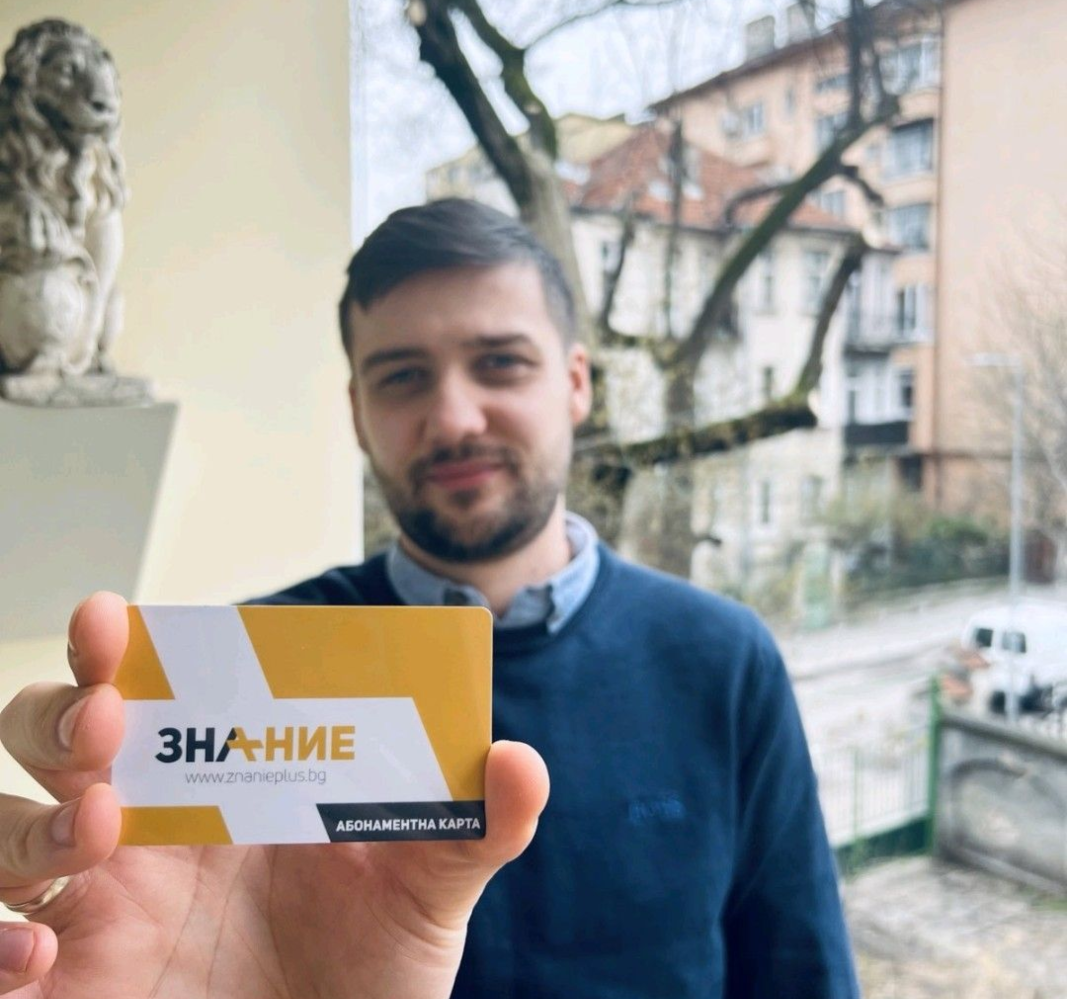Vouchers for food or clothes, fitness passes or team buildings... In Bulgaria, most social benefits for employees are material. The "extras" are more than welcome in conditions of inflation and price growth. But what about culture in this difficult situation? Tickets are becoming more and more expensive and the number of people can afford to visit cultural events is decreasing.
The "Knowledge+" (Znanie Plus) culture pass fills this empty niche. Developed by the Bulgarian History Association, it is the first social benefit in this country, fully focused on education, culture and arts. The idea is that the cards will be purchased by Bulgarian employers for their employees. "The business must support the people who work for it," one of the initiators, Mario Mishev, says in an interview with Svetlana Valkova from BNR-Varna.
"This is a pass that provides a discount for the services of various educational and cultural institutions. These are various places that are attractive for people tempted by creativity, by art. There are theaters, museums, galleries, but also places that give people the opportunity to improve their knowledge and skills, including foreign language courses, personal development academies and everything we can associate with education and culture."
The mobile application to the pass is currently under development. Contrary to expectations, it turns out that the Bulgarian employers are open to such projects:

"In our partner portfolio, we have over 60 organizations in the field of culture and education, some of them are leaders in their sphere, such as the Bulgarian Army Theater, the Polytechnic Museum, the House-Museum of Ivan Vazov. All this seems to be attractive for employers, because nowadays it is important for each of them that their employees and colleagues improve themselves daily, acquire new knowledge and skills and be competitive in their work. On the other hand, it is important for the employer to offer attractive conditions that will keep people in the company,” Mario Mishev claims.
The card does not provide free access to cultural institutions, but rather discounts ranging from 10 to 50%. "We expected that the main interest would come from IT companies, from companies in the field of outsourcing, but we notice that there is also great interest among small employers and family busineses, Mario Mishev points out and adds:
"Let's not forget that according to Eurostat, Bulgarians occupy the last place in the EU in terms of allocating funds from their personal budget for culture. If we can change that, even a little bit, we will be satisfied. The pass makes culture and knowledge more accessible. And when a person has the opportunity to visit a specific place at a preferential price, they usually do it. It's a model that has proven itself over time."
The culture pass is not an original idea of the "Bulgarian History" Association. "It exists across Europe and it was only a matter of time before it emerged in this country," Mario Mishev says in conclusion.
Compiled by: Veneta Nikolova / based on an interview by Svetlana Valkova, BNR - Varna/
English: Al. Markov
People with mental disabilities will share their unique perspective on Sofia's architectural heritage in the photographic exhibition "Architectural Stories from Old Sofia". It will be opened on November 1 in the Cultural Space of the Central Sofia Market..
Although they came with the calling to uplift our world, the chosen ones not only followed their predetermined path, but also risked not fully revealing themselves because of their sacred duty to the Fatherland. Among these Renaissance Bulgarians was..
The Plovdiv Jazz Festival is celebrating its tenth birthday this year with a program, both in the summer and autumn, featuring some of the biggest names in the world of jazz. The autumn edition will announce the second largest city in Bulgaria - Plovdiv,..

+359 2 9336 661
